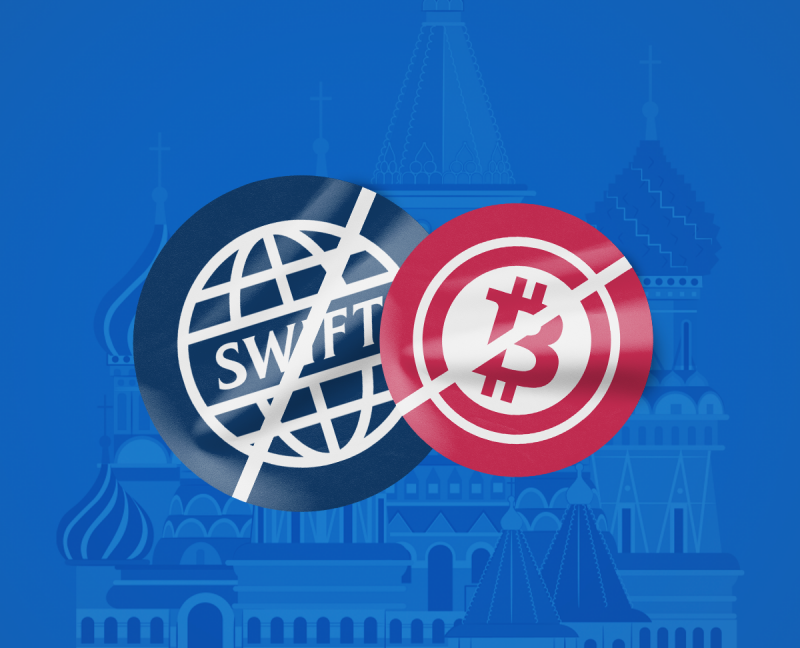
As Russia sadly continues its military actions into Ukraine there has been much speculation on the effects of this on global economies and how financial sanctions imposed by numerous countries will impact Russia and other users of the financial system. As an online payment provider, we have been considering some of the results of these actions on payments.
Numerous countries around the globe already had sanctions imposed on Russia since their annexation of the Crimean Peninsula in 2014, however, in the last few days, further financial penalties have been imposed. The US has added several Russian banks to its Specially Designated Nationals (SDN) list which essentially prevents these institutions from participating in the American financial system and freezes their US assets. Similarly, the European Union has agreed upon financial sanctions for even more Russian individuals including to the president Putin himself. The purpose of such financial punishments is to block further financing in support of the Russian military and to prevent influential individuals from having access to their funds as well as stopping them from avoiding personal impositions by dissipating their money through various accounts outside of Russia. These sanctions have certainly made a point politically, being hailed as the harshest penalties ever imposed on Russia and Russian individuals, however several methods of evading these sanctions have been identified, such as using crypto for example.
In addition to the current measures, many countries around the globe are calling for Russian banks to be removed from SWIFT, the financial messaging infrastructure that connects banks globally, with the hope that it would isolate Russia from international financial transactions, block further financing of the Russian military operations and harm the Russian economy. As Russia has one of the highest number of SWIFT users (only second behind the US), removing them from the service would arguably be “bigger than stopping EU imports of gas from Russia”. Understandably though, the general opinion on banning Russian banks from using SWIFT is mixed. In Europe, several countries (particularly Germany and Italy) use SWIFT to pay for Russian energy imports and so such measures would likely have an equally large impact on other users of the SWIFT system.
Furthermore, some have questioned the effectiveness of isolating Russia from the global messaging system as the Russians have developed their own alternative – SPFS – due to previous threats from the West in 2014 to disconnect Russia from SWIFT. Belarus, a key ally of Russia, has already effectively ditched SWIFT and instead connected its banks to SPFS with the intention of using it more this year. The alternative system however is not a full proof solution for Russia. SPFS is only used in nine countries (compared with over 200 connected to SWIFT), the system itself is only operational between Monday to Friday working hours and the transmittable message sizes are significantly smaller. Therefore, it appears that booting Russia from SWIFT would immediately cripple the ability of Russian banks to accept international payments but that it would not cause the same long-term damage as it would have done in 2014 when it was first put on the table.
The sanctions that have already been imposed on Russia, and those that are still in discussion, are evidence that politicians are still focused on traditional financial systems. It seems that sanctioned Russian individuals who still want to transact could do so using crypto since these currencies operate outside of traditional financial frameworks. Where payments made to or from sanctioned banks will be stopped, these crypto payments can continue to flow as normal as they do not need to be routed through such banks and the anonymity afforded to crypto users allows sanctioned individuals transact while hiding their true identity. It has been estimated, using IP addresses of crypto users, that Russians own twelve percent of the world’s crypto, meaning that they have the capability to continue to bring money into Russia to finance a continued assault on Ukraine, or dissipate funds around the world despite the numerous penalties that are currently imposed on an ever growing list of Russian individuals.
Crypto however, is also being used to help Ukraine. As of the 25th February, four million US dollars have been crowdfunded for the Ukrainian military in support of their defensive operations against Russian troops. Despite the value of crypto plummeting since the Russian military operation began, Bitcoin in particular has emerged as a key alternative payment method enabling donations to reach groups in Ukraine that have been blocked by traditional banking and payment providers.
The thoughts of the Safenetpay team are with Ukrainian people. The Russian military actions of their peaceful neighbour is painful, unnecessary and unacceptable. We hope that countries around the globe will support our friends in Ukraine as much as possible, financially or otherwise and that Russia will cease their military operation immediately and save countless lives.